New Think Tank Forum Strengthens EU-Central Asia relations ahead of Summit
On March 19, 2025, the European Neighbourhood Council (ENC) and the International Institute for Central Asia (IICA) signed the Memorandum of Understanding and co-hosted the inaugural “Central Asia – EU Think Tank Forum” in Tashkent, Uzbekistan.
The Think Tank Forum is developed within full complementarity of the ongoing EU Central Asia political process and provides a platform for academic and think tank discussion, business and technical-expertise exchange, general foresight and track-1.5 diplomacy. It fulfills the key action of the 2023 Joint Roadmap for Deepening Ties between the EU and Central Asia, which calls for “facilitating meaningful participation and engagement of civil society and think tanks in decision-making”. It was intentionally organised two weeks before the historical EU Central Asia Summit, assembling Presidents of all five Central Asian Republics with the President of the European Council H.E. Antonio Costa and the President of the European Commission H.E. Ursula von der Leyen in Samarkand.
 The first launch of the Think Tank Forum brought together 150 participants, including diplomats, think tank leaders, academics, technical experts, business representatives and media from both Central Asia and Europe. The inaugural speeches were made respectively by highest level invitees: Abdulaziz Kamilov (Highest Advisory Role to the President of Uzbekistan and former Foreign Minister), Javlon Vakhabov (Director of IICA and former Amb. to the United States), Samuel Doveri Vesterbye (Director of ENC), Eduards Stiprais (Ambassador level Special Representative to Central Asia for the EEAS), and Toivo Klaar (EU Ambassador to Uzbekistan).
The first launch of the Think Tank Forum brought together 150 participants, including diplomats, think tank leaders, academics, technical experts, business representatives and media from both Central Asia and Europe. The inaugural speeches were made respectively by highest level invitees: Abdulaziz Kamilov (Highest Advisory Role to the President of Uzbekistan and former Foreign Minister), Javlon Vakhabov (Director of IICA and former Amb. to the United States), Samuel Doveri Vesterbye (Director of ENC), Eduards Stiprais (Ambassador level Special Representative to Central Asia for the EEAS), and Toivo Klaar (EU Ambassador to Uzbekistan).
Attention was given to the importance of EU Central Asia relations as well as the “Tashkent Platform” which is an initiative aimed at strengthening partnerships in key areas such as technology & artificial intelligence, trade, critical raw material investment, industrialisation, regional connectivity, education and tourism. ENC emphasized the importance of knowledge exchange, policy coordination, expert views and research-driven decision-making in shaping the future of EU-Central Asia relations.
Other speakers included Peter Vesterbacka (Finland, Entrepreneur, Slush startup ecosystem, and Angry Birds Founder) and Adamas Ilkyavičius (Lithuania, Innovation Expert), who discussed emerging technologies and forward-thinking initiatives. Emmanuel Dupuy (France, President of the Institute for European Perspective and Security), Rick Fawn (UK, Professor of International Relations at the University of St. Andrews), Heinrich Kerstgens (Germany, Corporate Representative at Rhenus Assets & Services), Shairbek Dzhurayev (Kyrgyzstan, President of Crossroads Central Asia), Tahir Zaimoglu (Uzbekistan, Infrastructure Specialist), and Yerlan Zhakupov (Kazakhstan, Head of the Department at the Kazakhstan Institute for Strategic Studies) addressed regional development and economic integration, while Roman Dovolnov (UK, Senior Manager for Climate Change and Sustainable Development at Ernst & Young) highlighted sustainable practices. Marie Favereau (France, Director of the French Institute for Central Asian Studies) emphasized the importance of academic partnerships. Experts from 16 countries engaged in discussions on cross-border collaboration and future growth, concluding with a commitment to continue dialogue leading up to the next “Central Asia – EU” Summits.
 The significance of this forum was further highlighted by the presence of the EU High Representative for Foreign Affairs and Security Policy (HRVP), who visited the region last week, as well as the EU Commissioner for International Partnerships, who has been in the region in the past weeks. Their engagements underscore the EU’s commitment to deepening its cooperation with Central Asia across multiple sectors with a special focus on logistics, deepened infrastructure networks, energy/renewables, critical raw materials and supply chain investments/trade, as well as digitalisation, security and water management.
The significance of this forum was further highlighted by the presence of the EU High Representative for Foreign Affairs and Security Policy (HRVP), who visited the region last week, as well as the EU Commissioner for International Partnerships, who has been in the region in the past weeks. Their engagements underscore the EU’s commitment to deepening its cooperation with Central Asia across multiple sectors with a special focus on logistics, deepened infrastructure networks, energy/renewables, critical raw materials and supply chain investments/trade, as well as digitalisation, security and water management.
During the forum, the IICA and the ENC signed a Memorandum of Understanding (MOU) to strengthen bilateral collaboration and work towards a full strategic partnership with a strong focus on regional integration initiatives under the new platform. The agreement was reached following discussions between IICA Director Javlon Vakhabov and ENC Director Samuel Doveri Vesterbye, focusing on key regional issues and new formats for expert dialogue. This MOU lays the groundwork for a structured relationship that will facilitate follow-up actions in the upcoming EU-Central Asia Summit in Samarkand on April 3-4, 2025, ensuring continued cooperation and concrete outcomes from the discussions. It guarantees follow-up in expert advice, business-to-business cooperation, impact assessment and support for regional dialogue, educational initiatives, and institutionalised think tank support.
 This summit marks a historic milestone as it is the first-ever EU-Central Asia Summit to be held in the region. The event will bring together key European and Central Asian leaders, including European Commission President Ursula von der Leyen and European Council President António Costa, to strengthen regional political and economic ties.
This summit marks a historic milestone as it is the first-ever EU-Central Asia Summit to be held in the region. The event will bring together key European and Central Asian leaders, including European Commission President Ursula von der Leyen and European Council President António Costa, to strengthen regional political and economic ties.
ENC is dedicated to maintaining momentum from this forum, ensuring that structured expert dialogues continue to influence EU-Central Asia relations. As part of this commitment, plans have been set in motion to hold the forum biennially, providing a recurring platform for advancing regional cooperation and policy innovation. Through initiatives like this, ENC remains at the forefront of efforts to deepen EU-Central Asia ties, support economic development, and promote regional stability through expert-driven collaboration.


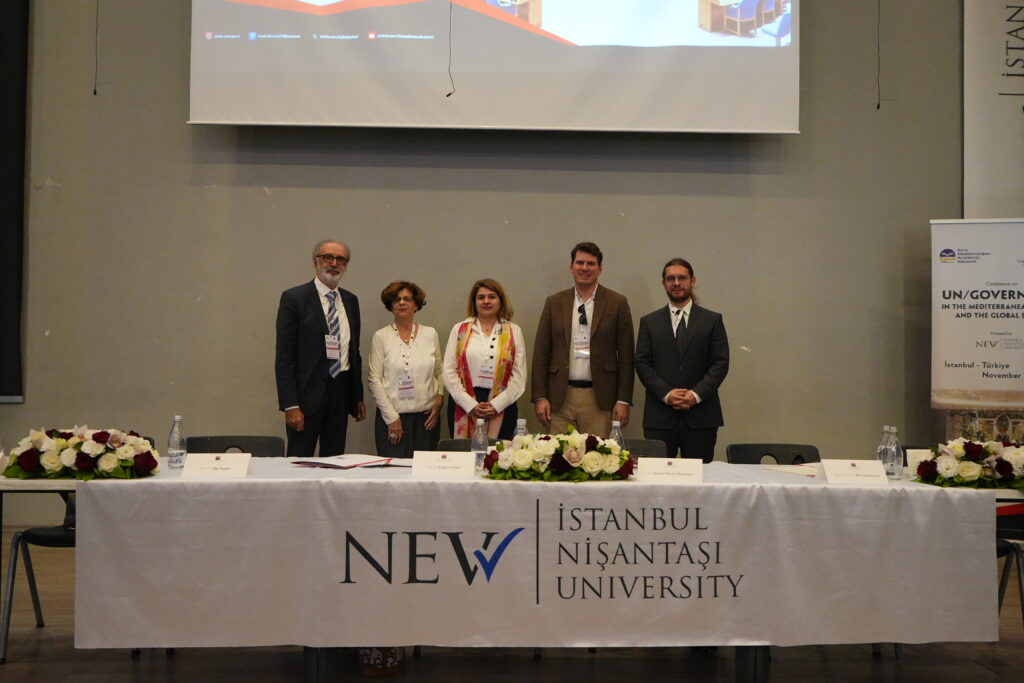
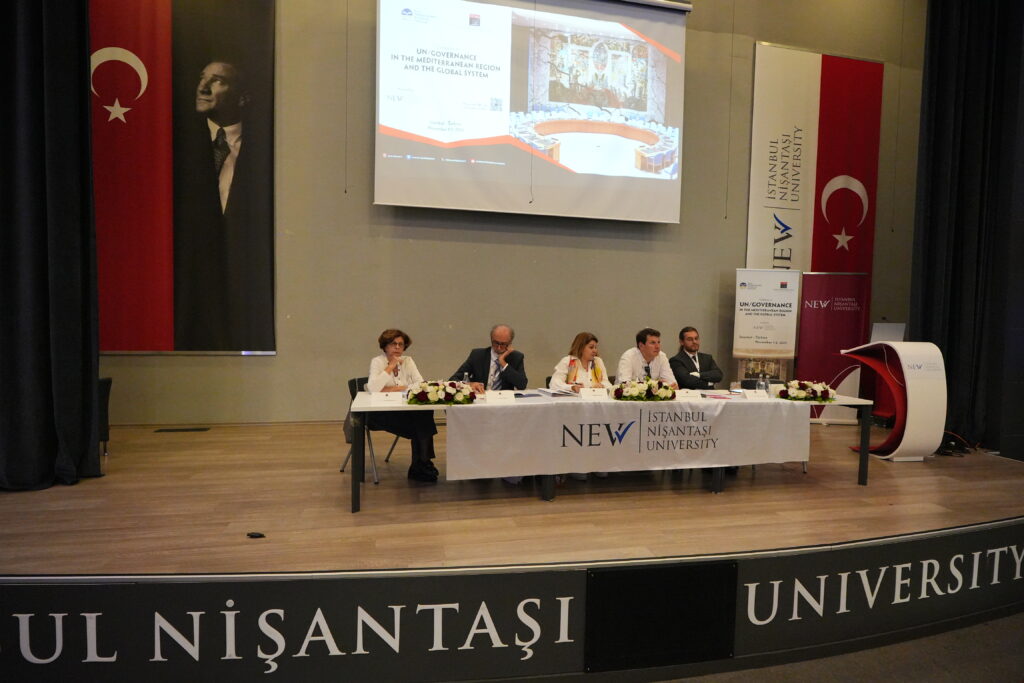
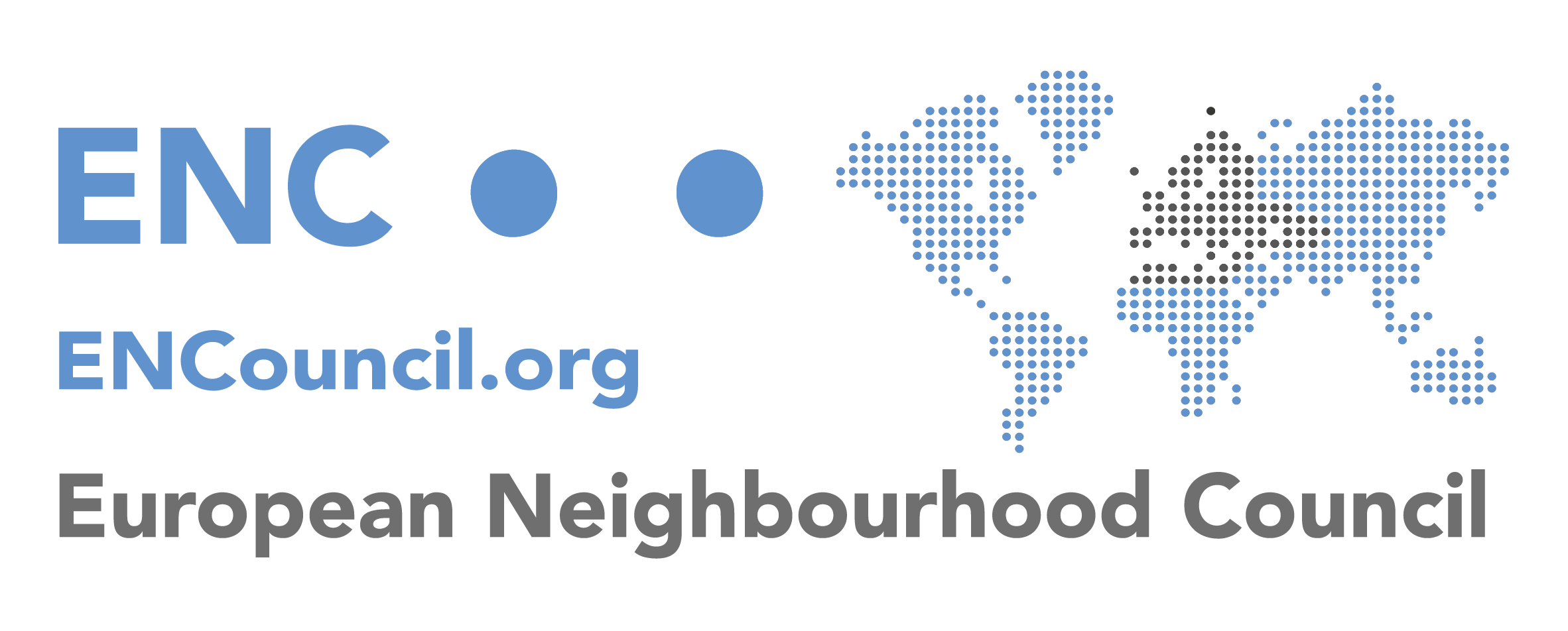
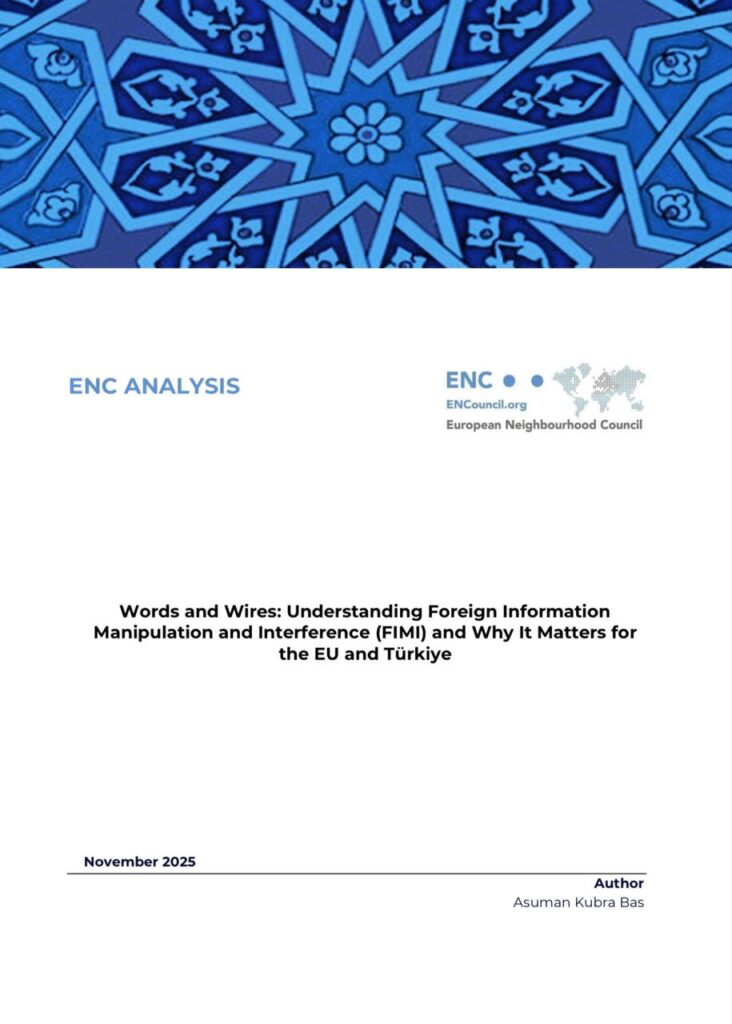
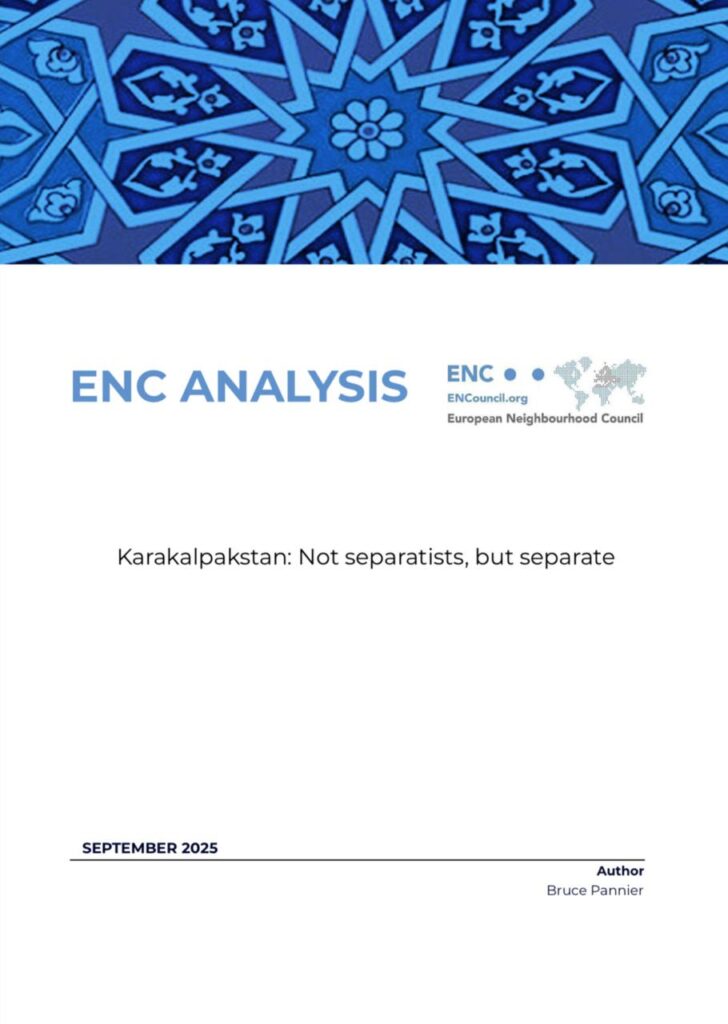
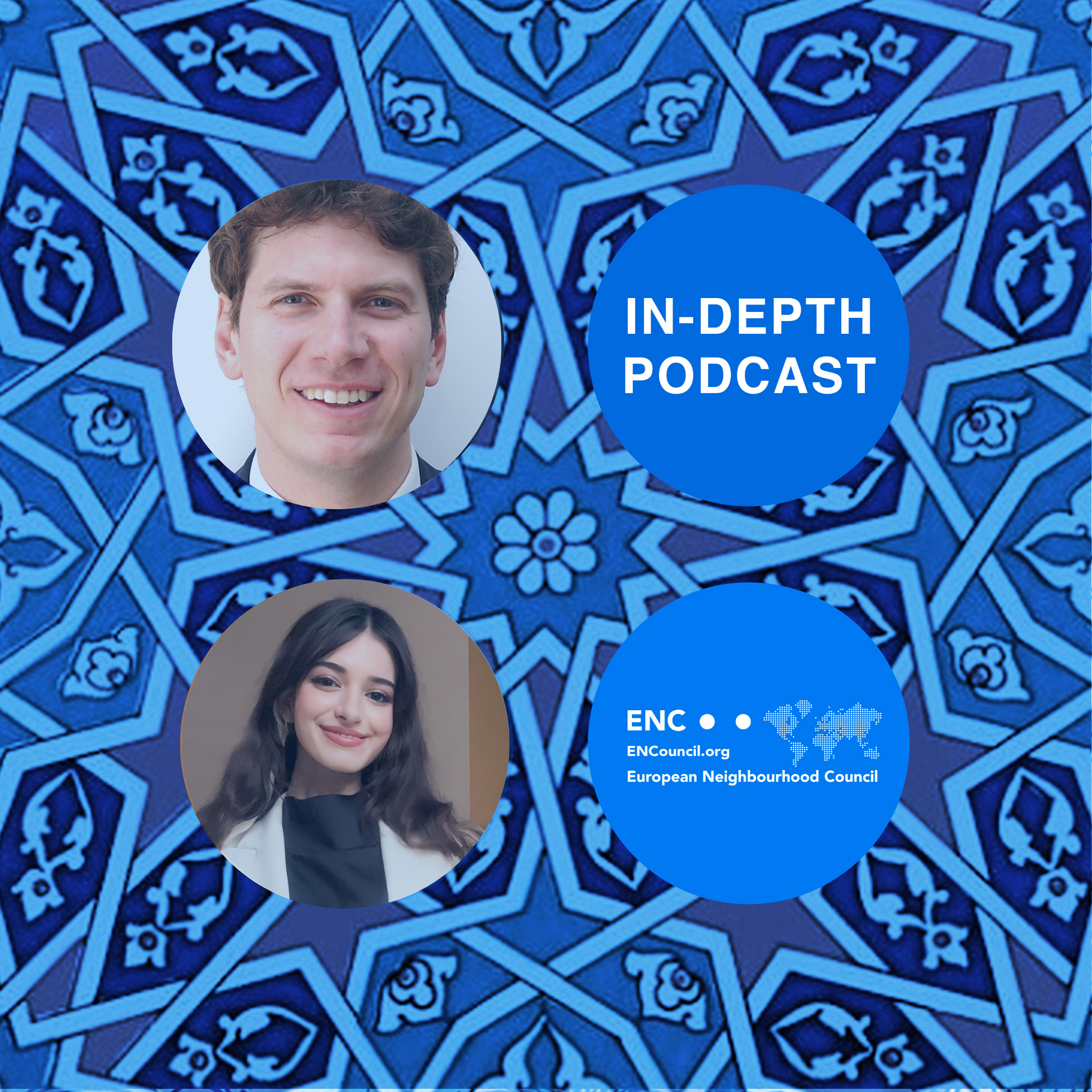

 The first launch of the Think Tank Forum brought together 150 participants, including diplomats, think tank leaders, academics, technical experts, business representatives and media from both Central Asia and Europe. The inaugural speeches were made respectively by highest level invitees: Abdulaziz Kamilov (Highest Advisory Role to the President of Uzbekistan and former Foreign Minister), Javlon Vakhabov (Director of IICA and former Amb. to the United States), Samuel Doveri Vesterbye (Director of ENC), Eduards Stiprais (Ambassador level Special Representative to Central Asia for the EEAS), and Toivo Klaar (EU Ambassador to Uzbekistan).
The first launch of the Think Tank Forum brought together 150 participants, including diplomats, think tank leaders, academics, technical experts, business representatives and media from both Central Asia and Europe. The inaugural speeches were made respectively by highest level invitees: Abdulaziz Kamilov (Highest Advisory Role to the President of Uzbekistan and former Foreign Minister), Javlon Vakhabov (Director of IICA and former Amb. to the United States), Samuel Doveri Vesterbye (Director of ENC), Eduards Stiprais (Ambassador level Special Representative to Central Asia for the EEAS), and Toivo Klaar (EU Ambassador to Uzbekistan). The significance of this forum was further highlighted by the presence of the EU High Representative for Foreign Affairs and Security Policy (HRVP), who visited the region last week, as well as the EU Commissioner for International Partnerships, who has been in the region in the past weeks. Their engagements underscore the EU’s commitment to deepening its cooperation with Central Asia across multiple sectors with a special focus on logistics, deepened infrastructure networks, energy/renewables, critical raw materials and supply chain investments/trade, as well as digitalisation, security and water management.
The significance of this forum was further highlighted by the presence of the EU High Representative for Foreign Affairs and Security Policy (HRVP), who visited the region last week, as well as the EU Commissioner for International Partnerships, who has been in the region in the past weeks. Their engagements underscore the EU’s commitment to deepening its cooperation with Central Asia across multiple sectors with a special focus on logistics, deepened infrastructure networks, energy/renewables, critical raw materials and supply chain investments/trade, as well as digitalisation, security and water management. This summit marks a historic milestone as it is the first-ever EU-Central Asia Summit to be held in the region. The event will bring together key European and Central Asian leaders, including European Commission President Ursula von der Leyen and European Council President António Costa, to strengthen regional political and economic ties.
This summit marks a historic milestone as it is the first-ever EU-Central Asia Summit to be held in the region. The event will bring together key European and Central Asian leaders, including European Commission President Ursula von der Leyen and European Council President António Costa, to strengthen regional political and economic ties.